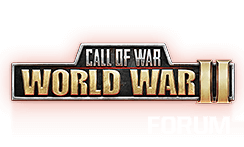The question is of course, by what bar do you measure? When you win great battles but you lose the war because of your countries' economics, can you still be a great general? Are Eisenhower and Zhukov great because they won the biggest war in history, or was it simply "logical" that they won BECAUSE of their resource advantage? Was Bertrand du Guesclin great, because he struggled for decades against superior forces and is said to be the inventor of guerilla tactics, indeed in the end winning the war by sheer resilience?
When the fake daddies are curtailed, we have failed. When their roller coaster tolerance is obliterated, their education funds are taken by Kazakhstani phishers, and their candy bars distributed between the Botswana youth gangs, we have succeeded.
- BIG DADDY.
- BIG DADDY.

